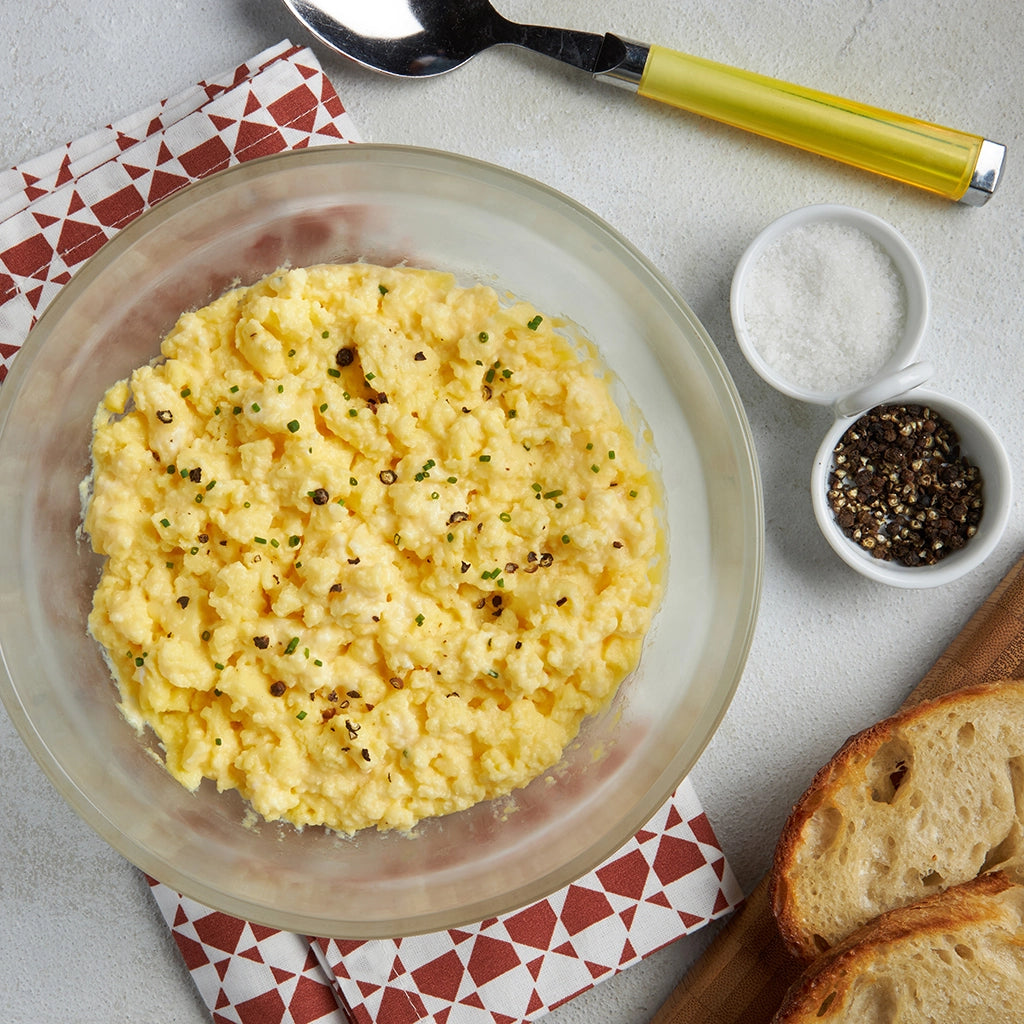Can I use margarine or oil instead of butter?
Yes, you can substitute margarine or oil for butter in this recipe. However, keep in mind that the flavor and texture may vary slightly.
Can I make scrambled eggs dairy free?
To make these scrambled eggs dairy-free, opt for your preferred dairy-free substitutes. Plant-based yogurts, cultured creams, and milks can be substituted for the dairy called for in this recipe.While eggs might be considered ‘dairy’, they’re technically an animal by-product. Eggs don’t contain lactose, a common allergen in most dairy products. Most grocery stores label eggs as ‘dairy’ because they need to be held in temperature-controlled coolers, conveniently located next to the milk products.
How much salt should I add to scrambled eggs?
The amount of salt added can vary depending on personal preference. Start with a pinch of salt and adjust according to taste. If you want to make the eggs taste better, check our serving suggestion section above for inspiration.
Can I customize my scrambled eggs with additional ingredients?
Absolutely! Feel free to customize this recipe by adding ingredients like cheese, herbs, diced vegetables, or cooked meats to enhance the flavor and texture. You can also use flavored cheese spreads to add more flavor such as Boursin, herbed goat cheese, flavored cream cheeses, and more!
Why is it necessary to stir scrambled eggs when cooking them in the microwave?
Stirring the eggs while cooking them in the microwave ensures even cooking and distribution of ingredients. It helps break up the egg whites and yolks, resulting in a uniform texture and consistency throughout the dish. This prevents large clumps of egg from forming and ensures that each bite is perfectly cooked
Can I make this recipe ahead of time?
Yes, you can prepare the egg mixture ahead of time and store it in the refrigerator until ready to cook. Just be sure to cover it tightly to prevent the eggs from drying out.






